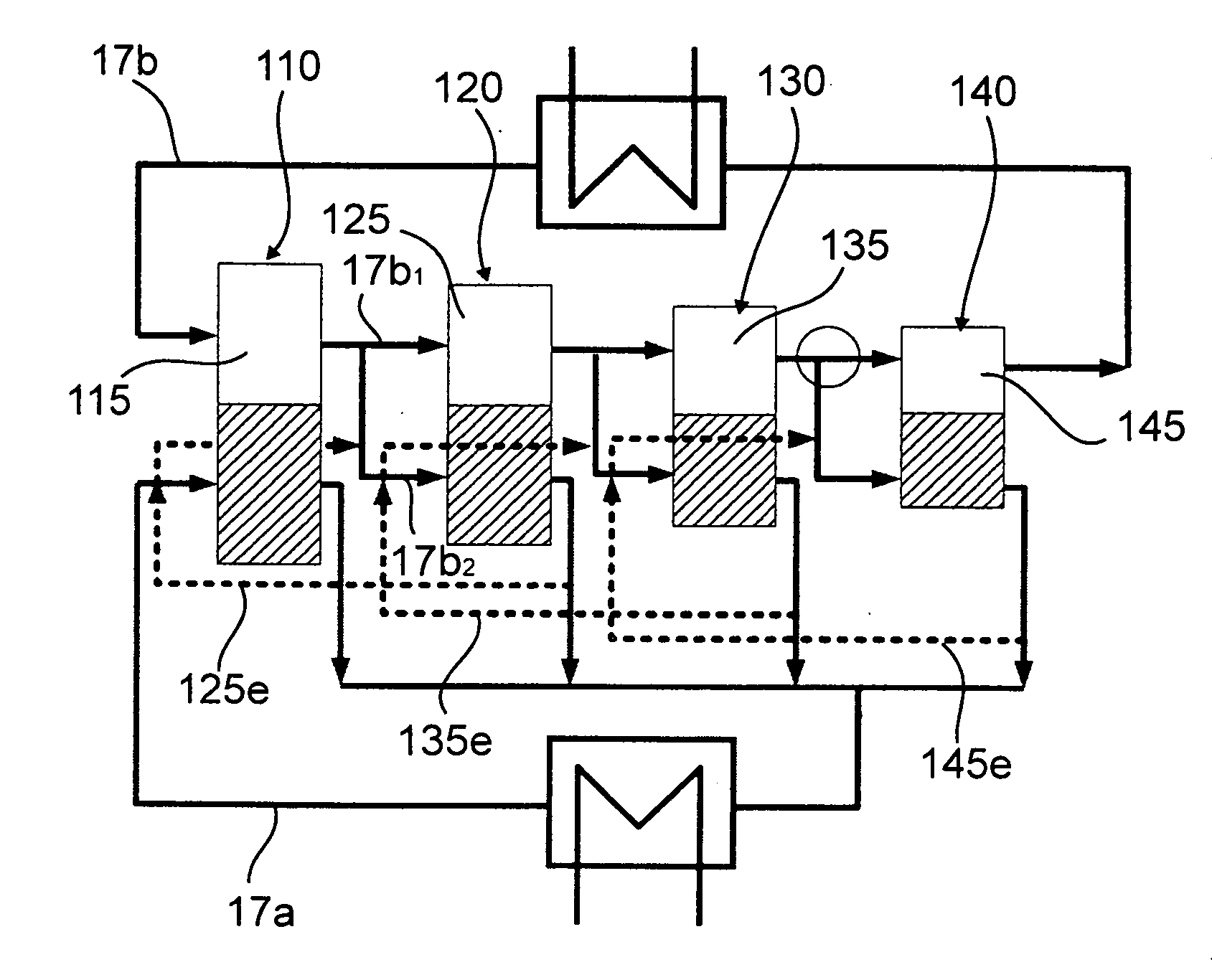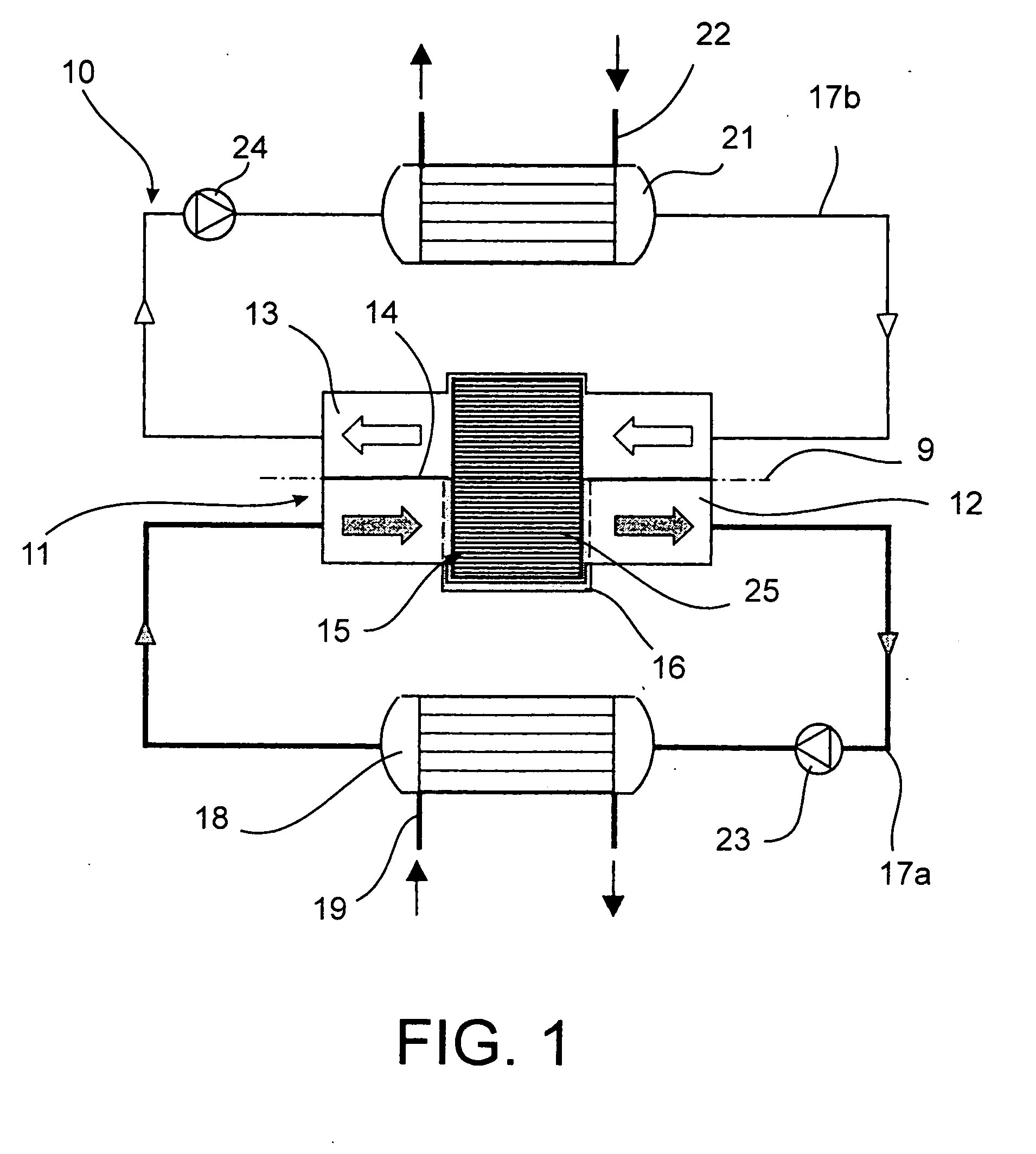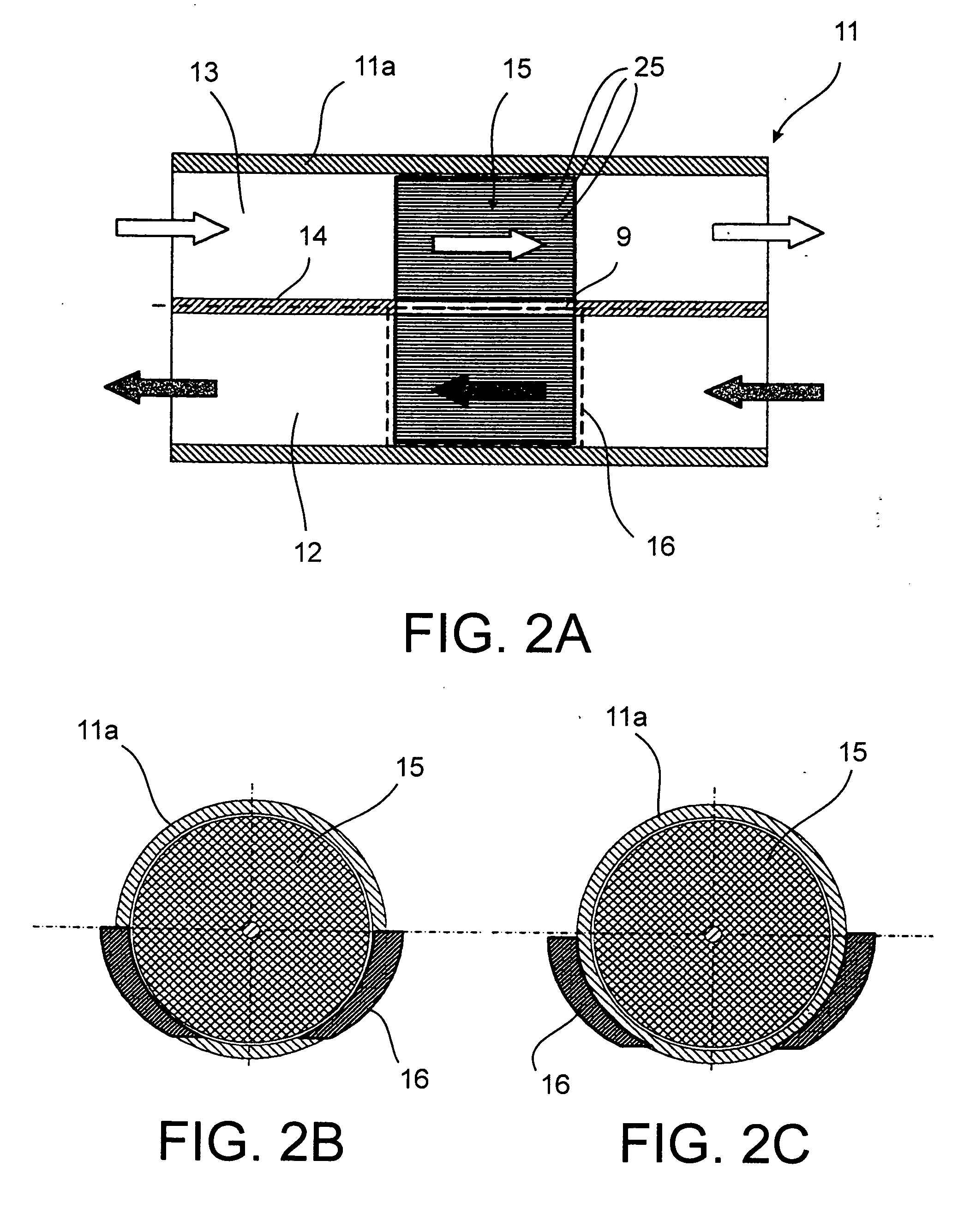Method and device for continuous generation of cold and heat by means of the magneto-calorific effect
a technology of magnetocalorific effect and continuous generation, which is applied in the direction of energy-saving heating/cooling, machines using electric/magnetic effects, machine operation mode, etc., can solve the problems of extreme pollution, inability to meet current environmental protection requirements, and inability to use refrigerants. to meet the current environmental protection requirements
- Summary
- Abstract
- Description
- Claims
- Application Information
AI Technical Summary
Benefits of technology
Problems solved by technology
Method used
Image
Examples
first embodiment
[0027] said rotating element may comprise a system of stacked discs made of different magneto-calorific materials, each disc comprising a unit of passageways communicating with the passageways of the adjacent disc or discs.
second embodiment
[0028] said rotating element may comprise a system of nested hollow cylindrical elements made of different magneto-calorific materials, each cylindrical element being traversed by a system of passageways.
third embodiment
[0029] In a third embodiment, said rotating element comprises a system of nested angular sectors made of different magneto-calorific materials, said angular sectors being insulated from one another by thermal insulation elements, and each angular sector being traversed by a system of passageways.
[0030] Said rotating element may also consist of a single cylindrical element made of magneto-calorific material, said cylindrical element comprising a system of passageways opening onto both of its surfaces.
[0031] In one particular embodiment, said rotating element comprises walled angular sectors containing generally spherical grains consisting of at least one magneto-calorific material, said traversing passageways being defined by interstices formed between the grains.
[0032] The traversing passageways may be defined by an alveolar structure or by hollow tubes located along the axle of the rotating element.
[0033] In one particular embodiment, said traversing passageways are formed of a ...
PUM
 Login to View More
Login to View More Abstract
Description
Claims
Application Information
 Login to View More
Login to View More - R&D
- Intellectual Property
- Life Sciences
- Materials
- Tech Scout
- Unparalleled Data Quality
- Higher Quality Content
- 60% Fewer Hallucinations
Browse by: Latest US Patents, China's latest patents, Technical Efficacy Thesaurus, Application Domain, Technology Topic, Popular Technical Reports.
© 2025 PatSnap. All rights reserved.Legal|Privacy policy|Modern Slavery Act Transparency Statement|Sitemap|About US| Contact US: help@patsnap.com



